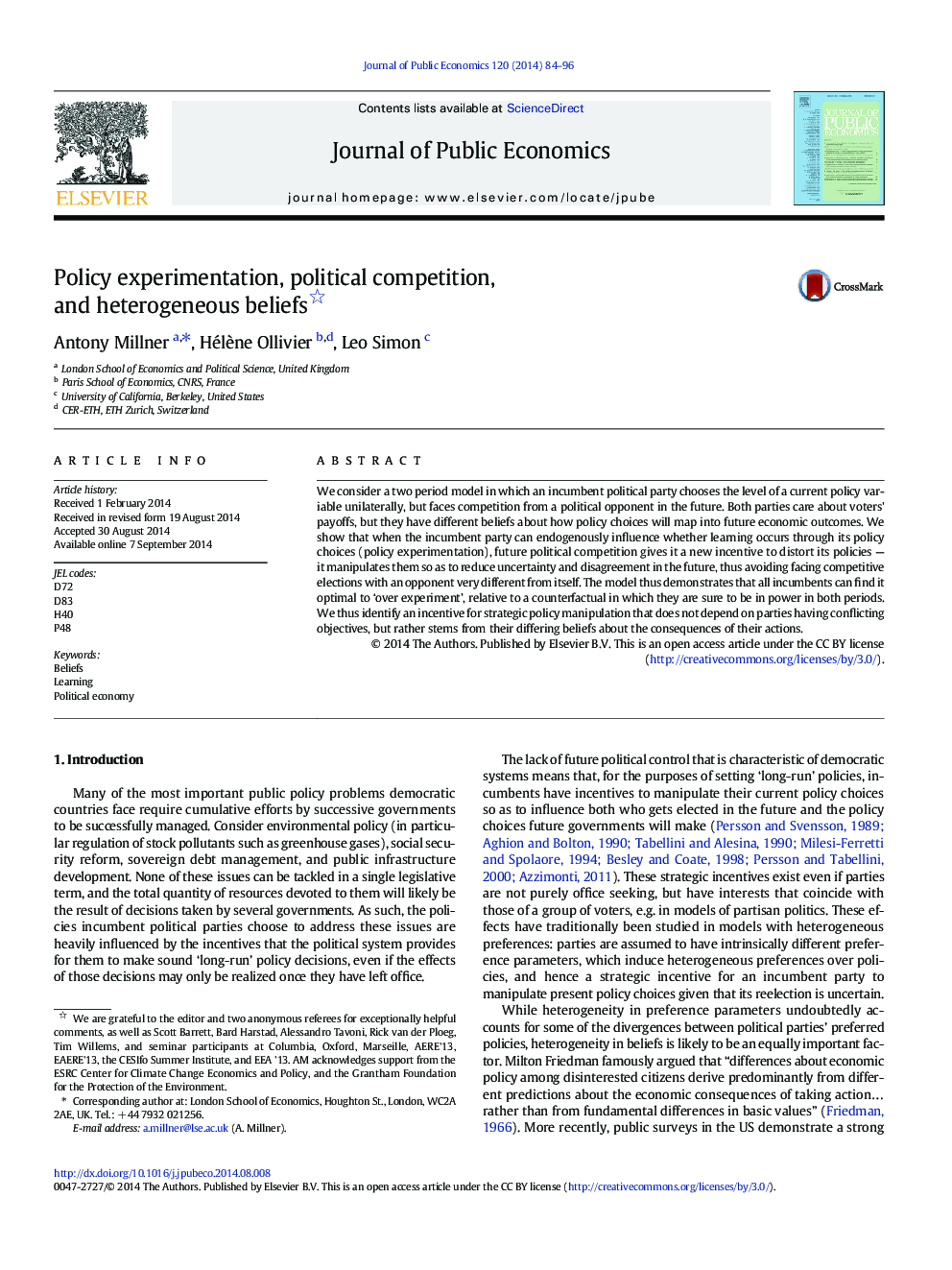| Article ID | Journal | Published Year | Pages | File Type |
|---|---|---|---|---|
| 7370142 | Journal of Public Economics | 2014 | 13 Pages |
Abstract
We consider a two period model in which an incumbent political party chooses the level of a current policy variable unilaterally, but faces competition from a political opponent in the future. Both parties care about voters' payoffs, but they have different beliefs about how policy choices will map into future economic outcomes. We show that when the incumbent party can endogenously influence whether learning occurs through its policy choices (policy experimentation), future political competition gives it a new incentive to distort its policies - it manipulates them so as to reduce uncertainty and disagreement in the future, thus avoiding facing competitive elections with an opponent very different from itself. The model thus demonstrates that all incumbents can find it optimal to 'over experiment', relative to a counterfactual in which they are sure to be in power in both periods. We thus identify an incentive for strategic policy manipulation that does not depend on parties having conflicting objectives, but rather stems from their differing beliefs about the consequences of their actions.
Related Topics
Social Sciences and Humanities
Economics, Econometrics and Finance
Economics and Econometrics
Authors
Antony Millner, Hélène Ollivier, Leo Simon,
